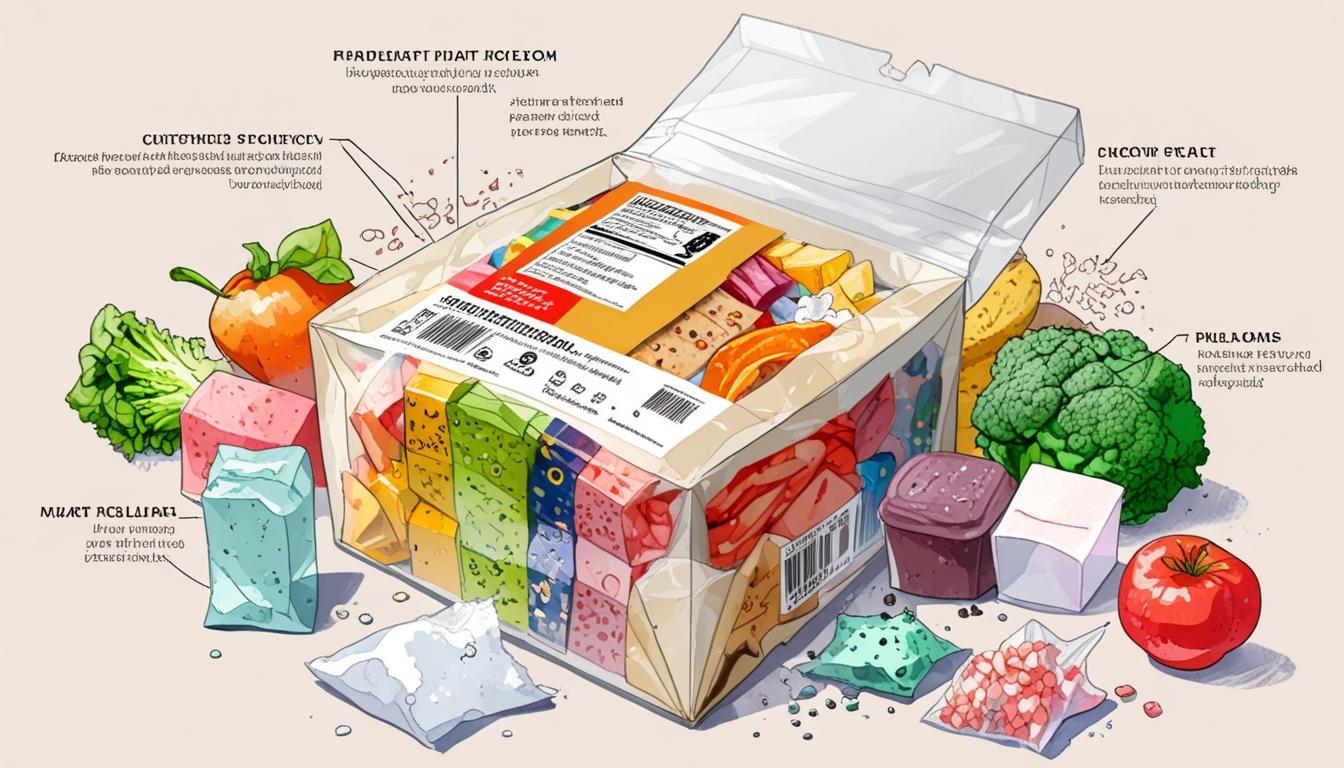The Hidden Dangers of “Healthy” Foods: What Nutritionists Want You to Know
In a world inundated with conflicting dietary advice—from low-carb diets to intermittent fasting—the landscape of nutrition can feel overwhelming. Each trip to the supermarket presents a barrage of products boasting health benefits, which can easily mislead consumers. While many adhere to the mantra that one should not label foods as simply “good” or “bad,” nutritionists warn that numerous items marketed as healthy could undermine your dietary goals by containing hidden sugars, artificial ingredients, or being classified as ultra-processed foods (UPFs).
Nutrition experts shed light on several commonly perceived healthy foods that warrant scrutiny. Emma Bardwell, a registered nutritionist and author of The 30g Plan, cautions against the widespread adoption of certain trendy ingredients.
The Coconut Oil Conundrum
Coconut oil has become synonymous with health even among wellness influencers, yet it is primarily composed of saturated fats. Bardwell notes that while it can enhance the taste of dishes, relying on it as your primary cooking oil could elevate your risk of atherosclerosis. Instead, she recommends switching to heart-healthy oils like olive or avocado, which boast beneficial fatty acids.
Himalayan Salt: The Salt of Controversy
Another health trend is the rising popularity of Himalayan salt, often perceived as a more "natural" alternative. However, Bardwell highlights concerns about microplastic contamination. A study conducted in Australia revealed that Himalayan salt contains more microplastics than even conventional sea salt due to pollution in harvesting areas. This insight calls into question its supposed health advantages.
Instant Oats and Sugary Gummies
The convenience of instant oats comes with a cost: a higher degree of processing that results in quicker digestion. Bardwell advises favouring less processed options like jumbo oats or oat bran for greater fibre content, which helps maintain stable blood sugar levels. Similarly, vitamin gummies have surged in popularity, but they often conceal high levels of added sugars, leading experts to label them as sweets masquerading as supplements.
Foods That Seem Healthy but Aren’t
Several nutritionists echo Bardwell’s concerns. Maz Packham, founder of Nourishful Nutrition, identifies flavoured yoghurts as a sneaky source of hidden sugars that could disrupt blood sugar levels. Instead, opting for plain Greek yoghurt topped with fresh fruits and spices provides a healthier alternative.
Reema Pillai, a weight loss nutritionist, warns about plant-based 'meats' that, while environmentally friendly, can be laden with preservatives and artificial ingredients. She recommends sourcing plant-based proteins from whole foods like lentils and beans—these not only provide better nutrition but also avoid the pitfalls of UPFs.
Other commonly misjudged items include ready-made granola, which, despite its wholesome appearance, often harbours excess sugars and additives. Homemade granola crafted from oats, nuts, and seeds can offer a more nutritious start to your day.
Portion Control: The Key to Healthy Snacking
Beyond individual foods, many experts point to the role of portion control in managing weight. Snacks like trail mix, which combine nuts and dried fruits, may appear healthy but are calorically dense. Pillai cautions that consumers often underestimate portion sizes, inadvertently leading to excessive calorie intake. She suggests creating homemade mixes that eliminate added sugars for a more guilt-free snack.
In a similar vein, energy balls made from dried fruits and nuts are praised for their convenience but can easily turn into calorie bombs if portions aren't monitored. Pairing them with fresh fruit might better regulate overall caloric consumption.
The Importance of Awareness
Ultimately, the underlying message is one of mindfulness. Nutritionists stress the importance of scrutinising food labels and being aware of hidden ingredients. The titles of seemingly innocent products—like ‘high-protein’ or ‘low-fat’—can mask what lies beneath. The ongoing debate around health foods suggests that educating oneself plays a crucial role in not just achieving weight loss goals but also in fostering a sustainable, healthy lifestyle.
While it can be tempting to reach for items that promise quick benefits, the insights from experts serve as a timely reminder: always consider the quality of food over mere marketing slogans. By choosing whole, less-processed options and being conscious of portions, individuals can navigate the complex landscape of modern nutrition more effectively.
Reference Map:
- Paragraph 1 – [1], [2]
- Paragraph 2 – [1], [3]
- Paragraph 3 – [1], [4]
- Paragraph 4 – [1], [5]
- Paragraph 5 – [2], [6]
- Paragraph 6 – [1], [7]
- Paragraph 7 – [3], [6]
Source: Noah Wire Services
